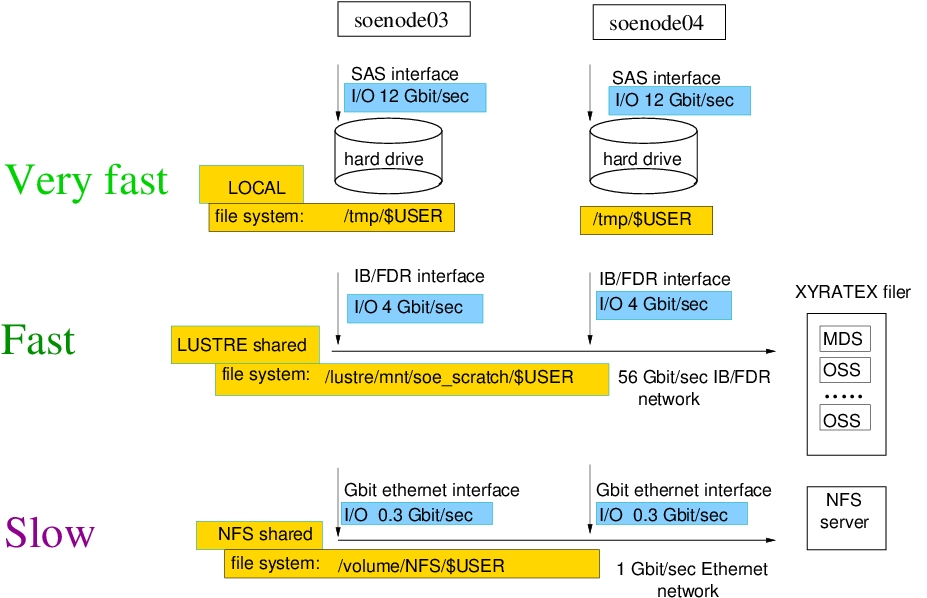#!/bin/bash
#SBATCH --job-name=OMP_run
#SBATCH --time=2:15:0
#SBATCH --output=slurm.out
#SBATCH --error=slurm.err
#SBATCH --partition=SOE_main
#SBATCH --ntasks-per-node=16
myrun=for.x # define executable to run
export OMP_NUM_THREADS=$SLURM_JOB_CPUS_PER_NODE # assign the number of threads for OpenMP
MYHDIR=$SLURM_SUBMIT_DIR # directory with input/output files
MYTMP="/tmp/$USER/$SLURM_JOB_ID" # local scratch directory on the node
mkdir -p $MYTMP # create scratch directory on the node
cp $MYHDIR/$myrun $MYTMP # copy the executable into the scratch
cp $MYHDIR/input1.dat $MYTMP # copy one input file into the scratch
cp $MYHDIR/input2.dat $MYTMP # copy another file into the scratch
# there may be more input files to copy
cd $MYTMP # run tasks in the scratch
./$myrun input1.dat input2.dat > run.out
cp $MYTMP/run.out $MYHDIR # copy the results data back into the home dir
rm -rf $MYTMP # remove scratch directory
| 
